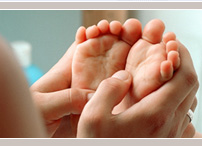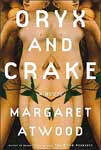 |
 |
 |
 |
 |
eNewsletters |
|
| Neuroethics, Tides Center and Scholar Blogger |
| ACT Theatre Event Invitation, August 2006 |
| Invitation and WBP Update, August 2006 |
| Summer ASBH Pre-Conference, June 2006 |
| Books, Bioethics, and Jodi Picoult, April 2006 |
| Women's Bioethics Project Book Club, April 2006 |
| Making a Difference, January 2006 |
| God's Bioethics?, November 2005 |
| Tribute to Our Founding Scholars, October 2005 |
| Katrina, 3 Updates, and an Invite, September 2005 |
| Follow-up on Women and Aging, August 2005 |
| Women and Aging, April 2005 |
|  |
Press Releases |
 |
Events Calendar |
 |
Archives |
 |
|
 |
|
 |
 |
|
 |

Because you are the leader of a successful book club, we'd like to
introduce you to a new program that will get you to think about your
book club in a whole new way.
The Women's Bioethics Project has just launched its first round of
innovative book club materials—built around mainstream books by
acclaimed authors such as Jodi Picoult and Margaret Atwood—developed to
encourage women to explore the direct and profound ways that emerging
biotechnologies will affect their lives.
The free book club support materials, which can slip right in to
your book club rotations, have been designed to make bioethical issues
relevant to women; we go beyond simply asking literary questions and
raise provocative questions that promote discussions of real issues.
What's more, we also provide an outlet for you to take action on issues
that you find personally meaningful, if you so choose.
We're starting with three works of fiction. You can read just one
or all three; they stand on their own but also work beautifully
together. They are My Sister's Keeper by Jodi Picoult, Never Let Me Go by Kazuo Ishiguro, and Oryx and Crake
by Margaret Atwood. Read in this order, they'll take you along a
continuum from stem cell and organ transplants between siblings—which
is real today—to futuristic possibilities that involve the same, very
real technologies.
The Women's Bioethics Project is a non-partisan, non-profit
organization, so our goal is not to influence your thinking but rather
to get the conversation started; we want to provide your book club with
the tools you'll need to come to your own conclusions about how you
want the future to look.
For more information and access to all of the free support materials and author interviews, please visit our website: www.womensbioethics.org
Thanks, and happy reading!
Kathryn Hinsch
Founding Director
The Women's Bioethics Project

"From my experience, the Women's Bioethics Project discussion guide we
used for My Sister's Keeper generated some of the most probing and
provocative discussion our book club has had in years. It induced all
of us to articulate and explore our emerging opinions on a variety of
bioethical issues that hadn't come up in the past, but will surely
shape our futures."
New York City
“Overall, the Women’s Bioethics Project book club beta test was a
very positive experience that generated long, thoughtful discussion for
all the groups. The book club materials also provided an innovative
learning tool for many women. They were very eager to discuss
bioethical issues when they were expressed in plain language and in the
context of real-life.”
Seattle, WA
Known for writing novels with provocative themes centered
on family conflict and difficult moral choices, Jodi Picoult presents the
story of a child whose sole reason for existence is to assure a genetic match
for her terminally ill sibling.
Ishiguro's… sixth novel is so exquisitely observed that even the most
workaday objects and interactions are infused with a luminous, humming
otherworldliness. The dystopianstory it tells, meanwhile, gives it a
different kind of electric charge.

In Oryx and Crake, a science fiction novel that is more Swift
than Heinlein, more cautionary tale than "fictional science"… Margaret Atwood depicts a near-future world that turns from
the merely horrible to the horrific, from a fool's paradise to a bio-wasteland.
|
 |


